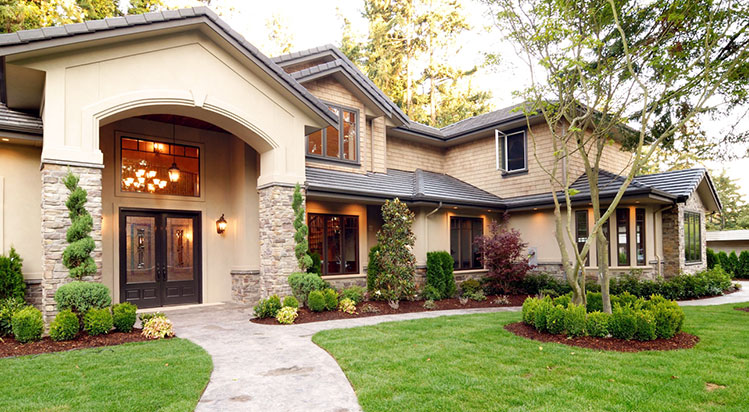Winterize Your Home
Have your heating equipment serviced to make sure that it is operating efficiently. Improperly tuned heating equipment can waste hundreds of dollars a year in fuel or electricity. Clean your chimney if you have a fireplace. Experts suggest that you have the chimney cleaned after burning four cords of wood, more frequently if you use wood softer than oak. Besides being a fire hazard, dirty chimneys can smoke back into the house, forcing you to open windows and doors, which let heat out. Turn off outside water faucets at a cutoff or insulate the hose bibs to prevent pipes from bursting. Weather-strip all doors and windows and consider using special plastic wrap to cover your windows. Make sure that all windows are fully closed. Keep the thermostat set low at night. Setting the thermostat back 8 degrees will save 8-10 percent of heating costs according to the U.S. Department of Energy. If you have a heat pump, you might need a special set back thermostat. Keep your garage door closed when it is, especially if you have a heated room above the garage. This will also help keep rodents out. Seal cracks and holes in foundations with cement or silicone based caulking. Seal any area larger than a crack with steel wool or copper wool and then foam insulation. The insulation will keep the cold out and the wool will keep rodents from entering your home. Keep firewood outside and bring it in only when you are going to burn it. Not only will you keep a huge cold mass outside but also you will reduce chances of insects coming in with the wood and becoming active as they heat up to room temperature.
Storing Firewood
Now that we are in the throes of winter, the allure of a roaring fireplace is hard to ignore. But the wood you bring in for your cozy fire can also bring unwanted hitchhikers.
A variety of insects, arachnids, and other arthropods like to live in, on, and around stacked firewood. Some harmless (though undesired) insects include pillbugs, sowbugs, daddy-longlegs, spiders, earwigs and springtails. The most problematic invaders are the carpenter ants and wood-boring beetles because these can damage your home.
There are several ways you can help reduce the likelihood of importing pest problems. If you have your own firewood supply outdoors, it’s best to stack it away from your house to discourage any of these creatures from wandering the short distance indoors for heat and shelter. Before bringing in firewood, make sure there are not bird or other animal nests on or near it. Keeping your firewood tightly wrapped and covered can help reduce the number of critters inside it. Before you bring wood indoors, brush off any soil or debris first and use firewood very soon after you bring it indoors. The shorter the amount of time it is sitting inside, the less likely any pests will start moving off of it and into the recesses of your home.
It’s also important to remember that it is never advisable to transport firewood great distances or move it across state lines. The spread of invasive insects is rapidly expanding and is greatly aided by the movement of firewood. By taking these steps, you will be much less likely to introduce a pest problem into your home this winter.


